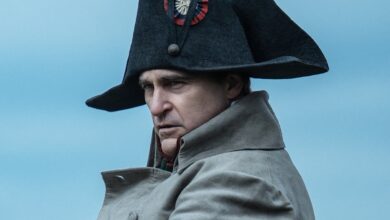Bada-bing! Farewell to James Caan, a screen tough guy with a heart as big as his fists

Like a panther or a heavyweight boxer, James Caan knew when to follow his instincts. There’s a famous moment early in Francis Ford Coppola’s 1972 mafia epic The Godfather – the film that earned Caan an Oscar nomination for Best Supporting Actor and secured his immortality – where he’s acting purely on intuition. The script called for Caan, playing Don Vito Corleone’s hotheaded eldest son Sonny, to confront the FBI agents stationed outside his sister’s wedding. On his way back inside he grabbed a camera from an agent and smashed it violently on the ground. “I didn’t know I was gonna do it,” Caan told the AV Club earlier this year. “Nobody knew I was gonna do it, but I just did it. I was just impulsive.”
Part of what makes the scene so memorable is what Caan, who died on Wednesday (6 July) at the age of 82, did next. He wordlessly reached into his pocket and tossed a couple of bills on top of the wreckage, then turned and walked away. “Where I’m from… if you put the money on the ground, it’s OK,” Caan explained later. “You’re forgiven. You know what I mean? I paid for it, and forget it.” The gesture may have been unscripted, but it perfectly introduced both Sonny’s volatile temper and the mafia’s attitude towards the settling of debts. Once set in motion, the character found himself on an inexorable path to his bullet-riddled murder at a toll booth, one of the most famous deaths in cinema history. The scene was one of Caan’s many improvised contributions to The Godfather. He also dropped the musical phrase “bada-bing” into his frenetic description of an up-close assassination, something he’d heard real-life crime family capo Carmine Persico say while researching his role, so it’s Caan that The Sopranos have to thank for naming their strip club.
By the time he appeared in The Godfather, aged 32, Caan was already a leading man. He was born in New York’s Bronx, the son of Jewish immigrants from Germany, and grew up in Sunnyside, Queens, alongside his friend and future collaborator Coppola. Caan began his acting career in off-Broadway plays before breaking into film and television. Howard Hawks’s 1965 stock car racing drama Red Line 7000 gave Caan top billing for the first time, and he worked with the director again the following year on western El Dorado, alongside fellow all-American tough guys John Wayne and Robert Mitchum.
While the role of Sonny in The Godfather secured Caan’s reputation, it also typecast him as a streetwise heavy. “I was always cast as Mister Tough Guy or Mister Hero,” he lamented in a fascinating, wide-ranging interview with The Independent last year. “They wouldn’t let me do much else.” Caan both played up to and subverted this persona. In a 1976 interview with Playboy, he complained that the tabloid press kept portraying him as “a macho f***in’ pig” who liked to “get loaded and go around smackin’ people, humpin’ women in the gutter and all that s***.” The truth, Caan maintained with wry humour, was very different. “I was brought up to defend myself if I have to, but I’ve never started a fight in my life, and I can’t remember the last time somebody started one with me,” he said. “When I take a drink – which isn’t often, mostly wine – I get happy and laugh a lot. And I’ve never f***ed a woman in the gutter – not without putting a pillow under her first. Chivalry ain’t completely dead, you know.”
The death of Caan’s younger sister Barbara from leukaemia in 1981, coupled with his addiction to cocaine, led to periods in the Eighties away from the screen. In the Nineties he re-established himself as a force to be reckoned with, beginning with his role as author Paul Sheldon in Rob Reiner’s 1990 adaptation of Stephen King’s Misery. The role required him to be bed-bound for pretty much the entire movie. “It was a private joke,” Caan told The Independent. “‘Let’s get the most neurotic actor in Hollywood and put him in a bed for 15 weeks.’” In 1996 he helped launch Wes Anderson’s career by lending his star appeal to the director’s debut film Bottle Rocket, while in 2003 Caan earned a whole new generation of fans with his turn as Buddy the Elf’s cantankerous biological father in Elf.
Perhaps Caan’s greatest performance came in Michael Mann’s crime thriller Thief, released in 1981, the same year that Barbara died. Reacting to news of Caan’s death, Mann said that the actor “reached into the core of his being during difficult personal times to be the rebellious, half wild-child, institutionalised outsider Frank… The character and the man – like his Sonny in The Godfather – were made for each other.”
Caan imbues his performance as a master safecracker with plenty of swagger and enough daring to set your pulse racing, but beyond the thrilling action and high-wire tension it’s a performance shot full of heart. At the end of the first act, Caan’s Frank takes Tuesday Weld’s Jessie for a late night coffee to convince her to start a new life with him. Over the next 10 minutes, across a diner’s Formica table, Frank bares his soul, opening up about his work as a thief and his time in prison. Frank is a mess and Caan lets us see it: he’s angry and sad, scared and brave all at once. Like Caan himself, he’s a macho man letting himself be vulnerable, and trusting his instincts.





